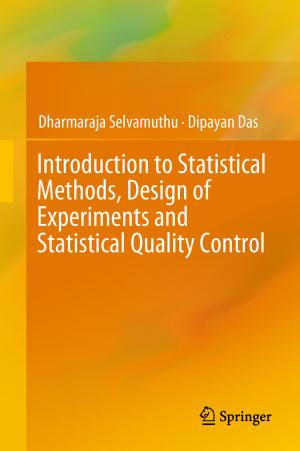Agroforestry
Anecdotal to Modern Science
Nonfiction, Science & Nature, Technology, Agriculture & Animal Husbandry, Science, Biological Sciences, Environmental Science| Author: | ISBN: | 9789811076503 | |
| Publisher: | Springer Singapore | Publication: | April 6, 2018 |
| Imprint: | Springer | Language: | English |
| Author: | |
| ISBN: | 9789811076503 |
| Publisher: | Springer Singapore |
| Publication: | April 6, 2018 |
| Imprint: | Springer |
| Language: | English |
Agroforestry (AF) is a dynamic, ecologically based, natural resources management system that, by integrating trees on farms, ranches, and in other landscapes, diversifies and increases production and promotes social, economic, and environmental benefits for land users. Further, it is receiving increasing attention as a sustainable land-management option worldwide because of its ecological, economic, and social attributes. Advances have been achieved by building on past research accomplishments and expanding AF’s stakeholder base, which now includes private/public partnerships, communities, ecologists, farmers, indigenous peoples, and policymakers in both temperate and tropical countries.
AF has now been recognized as a valuable problem-solving approach to ensuring food security and rebuilding resilient rural environments. Recent studies have shown that more than 1 billion hectares of agricultural land have more than 10% tree cover. Of this area, 160 million hectares have more than 50% tree cover. Agricultural ecosystems can be further improved through AF to achieve environmental restoration, greater farm productivity, and key ecological services, including climate change mitigation and adaptation for improved rural livelihood. In fact, it is largely considered synonymous with climate smart agriculture and a remedy for many modern environmental challenges. Consequently, AF’s knowledge base is being expanded at a rapid rate, as illustrated by the increasing number and quality of scientific publications on various forms and different aspects of AF.
This book offers state-of-the-art information on the fundamental concepts and history of AF and its evolution as a science, presenting a wealth of advanced research results and evaluations relating to different aspects of AF. Accordingly, it will be useful for a broad readership, including students, foresters, farmers, local communities, indigenous peoples, civil society institutions, media, policymakers and the general public.
Agroforestry (AF) is a dynamic, ecologically based, natural resources management system that, by integrating trees on farms, ranches, and in other landscapes, diversifies and increases production and promotes social, economic, and environmental benefits for land users. Further, it is receiving increasing attention as a sustainable land-management option worldwide because of its ecological, economic, and social attributes. Advances have been achieved by building on past research accomplishments and expanding AF’s stakeholder base, which now includes private/public partnerships, communities, ecologists, farmers, indigenous peoples, and policymakers in both temperate and tropical countries.
AF has now been recognized as a valuable problem-solving approach to ensuring food security and rebuilding resilient rural environments. Recent studies have shown that more than 1 billion hectares of agricultural land have more than 10% tree cover. Of this area, 160 million hectares have more than 50% tree cover. Agricultural ecosystems can be further improved through AF to achieve environmental restoration, greater farm productivity, and key ecological services, including climate change mitigation and adaptation for improved rural livelihood. In fact, it is largely considered synonymous with climate smart agriculture and a remedy for many modern environmental challenges. Consequently, AF’s knowledge base is being expanded at a rapid rate, as illustrated by the increasing number and quality of scientific publications on various forms and different aspects of AF.
This book offers state-of-the-art information on the fundamental concepts and history of AF and its evolution as a science, presenting a wealth of advanced research results and evaluations relating to different aspects of AF. Accordingly, it will be useful for a broad readership, including students, foresters, farmers, local communities, indigenous peoples, civil society institutions, media, policymakers and the general public.















